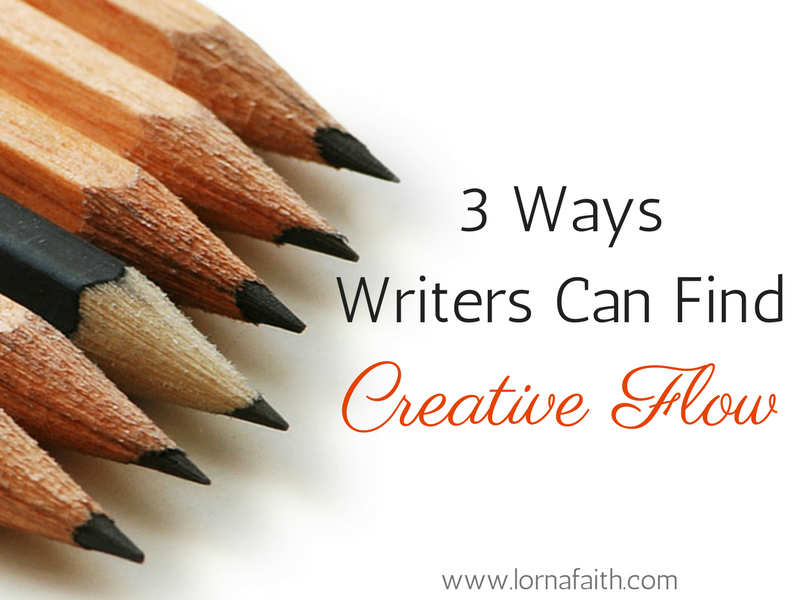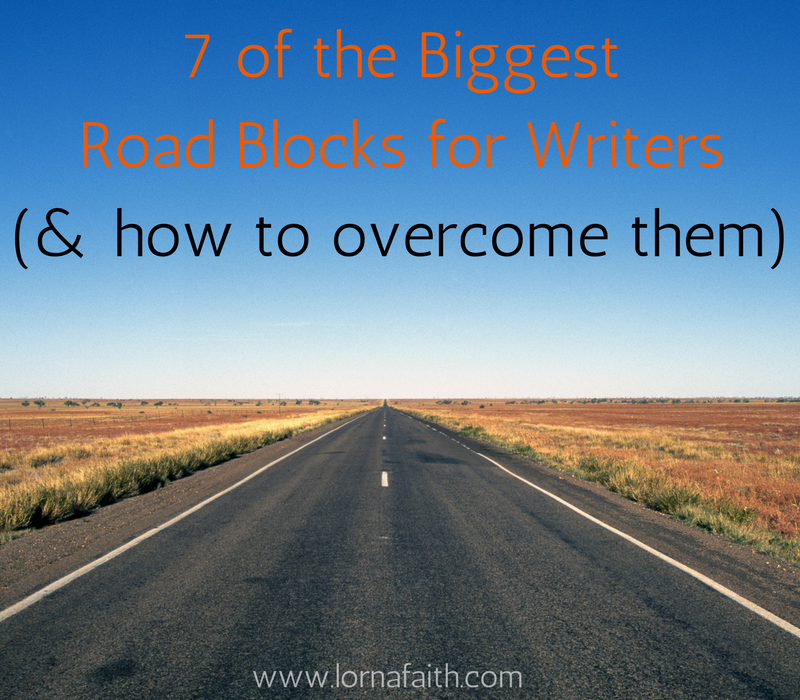As writers, sometimes it’s difficult to get past distraction, procrastination and a feeling of ‘stuckness’ to find our creative flow.
When we face the blank page, or when we feel stuck writing a scene or chapter and we can’t find the words, that’s when we long for flow.
We long for the words to flow quickly. We dream of losing ourselves in that favourite scene or chapter. We want that feeling of when we’re just itching to write even more.
So how can writers find creative flow? Read on for 3 ways that might just help you…

What is Creative Flow?
You might be asking, what is creative flow?
In simple terms: it’s a state your mind you reach when you are absorbed in a project or when you are totally immersed in your creative project. You’ll know you’re in flow when…
1.You lose track of time.
2.You forget about others and basically the world around you.
3.You feel happier and have more clarity and focussed direction.
4.You have increased imagination and productivity.
Creative Flow is one of the most important keys to achieving your goals.
This type of focussed, Deep Work (a phrase coined by Cal Newport) is what helps you get books written and published. It’s by losing ourselves in important and challenging tasks, that helps writers to get our most memorable and profitable projects written and out into the world.
How can writers get to this kind of happy state of flow?
I wanted to share with you 3 simple ways that have helped me get out of my own ‘stuckness’ and into creative flow.
1.Talk out your scene or chapter. This was an amazing discovery for me. I found that when I talk my story to my hubby or my daughter, many times ideas would come at me, just from speaking ideas out loud. And don’t forget that the other person listening to your story or book idea, might offer some helpful insights of their own. That’s what happened to me a few weeks ago, when I shared my story idea with my daughter. She gave me a ton of great ideas and surprisingly we came up with the whole story for my pen name romance, within an hour of us sitting down to chat.
Another idea that works here is to use a voice recorder to explain your story or book idea. Just start talking out your ideas, and you’ll be surprised by what emerges. Thoughts and ideas you never realized you had, will suddenly bubble to the surface. Then later on, you can play back the recording and jot down your ideas.
2.Write down a paragraph description of what you will write that day. I got this idea from Rachel Aaron’s super helpful book, 2K to 10K. In this most recent romance I’ve been writing, I’ve discovered that when I end a writing a session and quickly sketch out what I want to write in the next scene coming up, it helps me get into creative flow quickly. Bestselling Indie Author Stacy Claflin, shares how she writes a brief description of the next scene in this author interview.
When you know ahead of time what you’ll be writing and you focus on what you’re writing in that moment, you’ll soon find all the extra ‘noise’ around you will fade away. You’ll get to writing your scene/chapter much quicker by writing that short description.
3.Train yourself to focus on your writing project for as long as you can. I’m still learning how to do this better. Sometimes I get distracted too easily. I’ve seriously been training myself to say ‘no, you can do that later… right now you need to focus on the story.’ This has been a learning curve for me, but I’m getting there 😉
Focussing for a long period of time, takes practice. I liken it to practicing piano – something I used to do for hours daily. But I didn’t start there. I first started practicing 15 minutes a day and slowly practiced for longer periods of time. Or if it helps, you can think of it like walking or running daily. At first you have a tough time just going for that 1/2 mile or so, then soon, you find that your muscles have developed more and more until going for a few miles at time comes a lot easier than it ever did before.
The most important thing is to keep trying. Keep practicing. Keep training yourself to focus for longer time periods.
Be encouraged… you will get better. And if you can learn to keep bringing your focus back to your writing project – and you’re writing what you love, it’s important to your goals and it’s a rewarding – then you’ll soon find yourself in that beautiful state of creative flow.
You know what the best part is? When you have reached creative flow and your story is coming to you easier, it seems like the worry of failure and self-consciousness begins to disappear because you have such a single-minded focus on writing your story. This is what I’ve experienced, and I’ve been amazed at the satisfaction and joy I’ve felt when I’m in that flow state.
I hope you find that these tips are helpful to you as you write your book and that you find yourself loving your work and that getting into creative flow gets easier for you.
What are some tips you have that help you get into creative flow? Please do share your thoughts in the comments… we can learn from each other 😉



